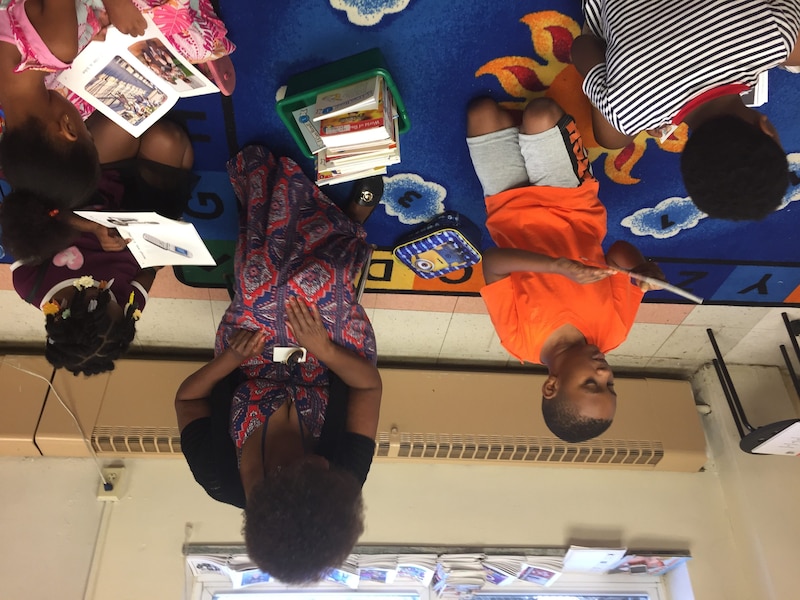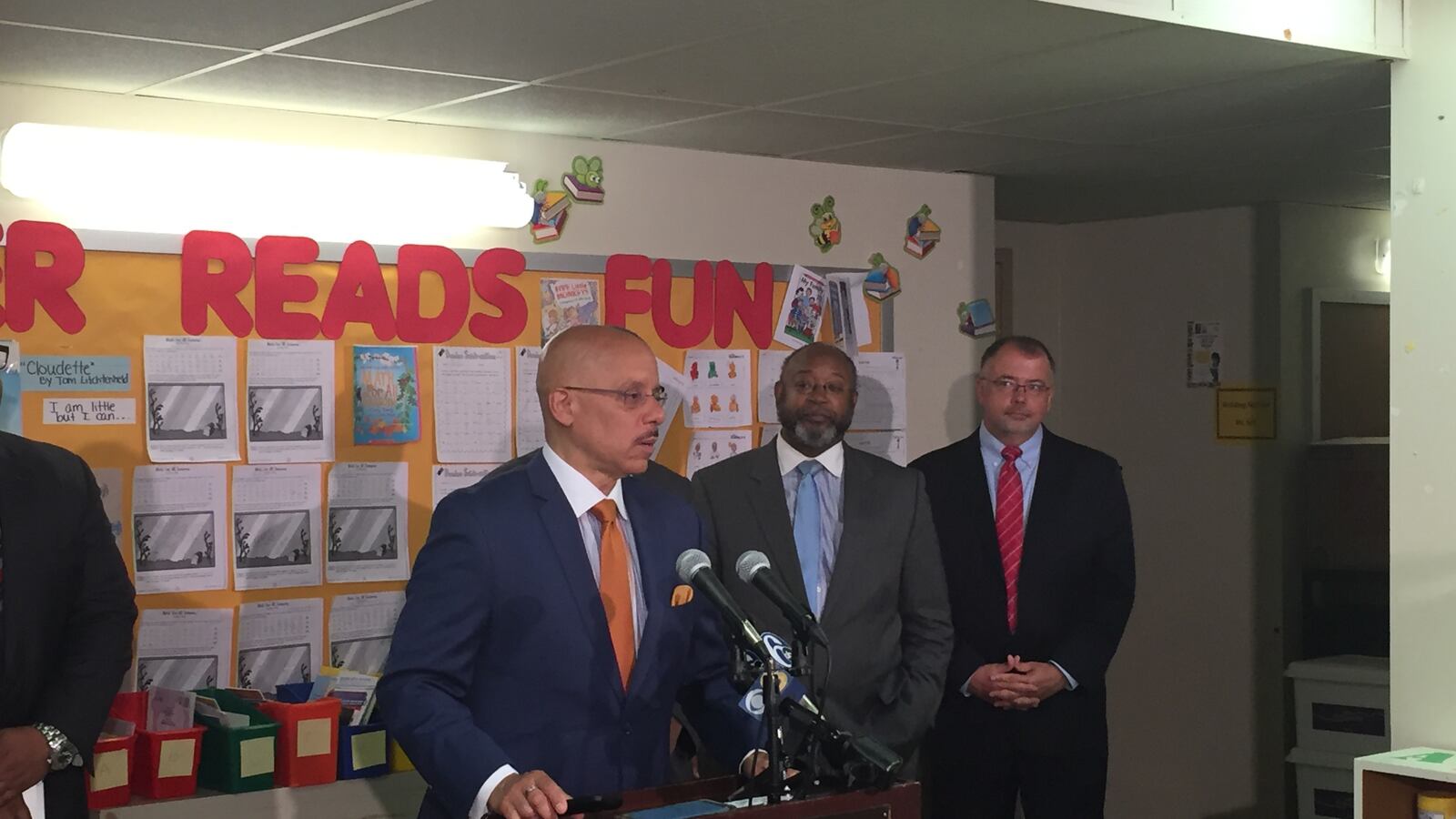This article was originally published in The Notebook. In August 2020, The Notebook became Chalkbeat Philadelphia.
The aim is to increase children’s reading. But the problem is simple math.
State Sen. Vincent Hughes, D-Philadelphia, said that young students who don’t keep up their reading skills during the summer lose an average of three months of the skills and knowledge they gained in school – the so-called “summer slide.” Then that time has to be made up.
That, Hughes said, theoretically adds up to three years’ lag by the time a student graduates from high school.
Hughes spoke to a crowd of parents and news media on Tuesday at the Overbrook Educational Center, where he announced the sixth year of the Summer Reads: Read to Succeed program.
The program aims to counteract summer slide. In Philadelphia, there are 12 locations serving 475 students entering 1st, 2nd and 3rd grades.
Joining Hughes at the news conference were Democratic State Sens. Art Haywood and Sharif Street. With them were Patrick Clancy, CEO and president of Philadelphia Works, a citywide workforce development program; John Barber, chief development officer at the Fund for the School District of Philadelphia, and Quiana Davis, parent of a student in the program.
Hughes, who had the initial idea for the program and enlisted fellow legislators to drum up corporate and other financial support, said there is evidence that the program works.
“Our research indicates that the average participant in our Read to Succeed Program when they start school in September are six months ahead” of comparable students who did not participate, Hughes said.
Another math problem: If students fall three months behind during the summer, it takes another three months to make it up.
Hughes said their goal is to have all students reading at grade level throughout their 13 years in school, and he feels that this program can help do that.
“The solutions are locked in their brain. It’s our job as adults to unlock those solutions and let them flourish,” Hughes said. “We believe Read to Succeed in its intentional efforts to get every child at grade level reading is a key and fundamental way to make that happen.”
Haywood compared students falling behind in reading to a relay race. If the first runner falls behind, the subsequent racers must push that much harder to catch up. Haywood said students like the program and seem eager to improve their reading ability.
The dozen or so students present for the announcement all had their noses buried in books.

An adult volunteer reads with children at the Overbrook Educational Center.
“If we do something that the children want to have, I have not seen any one of these students run away from wanting to participate. They all want to be involved,” Haywood said. “When they see a loving and smiling teacher, when they get the firmness from Mom and Dad, they want to get engaged, and they clearly perform better at the end of the program.”
Haywood said Read to Succeed also checks students’ vision to determine whether they need glasses. If they do, the program provides two pairs.
Street said it is important to develop reading early, so that students have enough words in their vocabulary to properly express themselves.
“My staff pointed out to me statistics that I found to be astounding, that young people can fall as many as 30 million words behind” by the time they enter school. He was referring to an often-quoted study estimating the difference in the number of words that low-income children have been exposed to through conversation compared to middle-class children.
“Then we wonder why there is a need for folks to incorporate colloquial vernacular, as we would say,” Street said. “But I think it’s important, because to the extent that young people don’t have the words to express themselves, they’ll find those words.”
Clancy said Philadelphia Works is employing 36 young people for Read to Succeed, placing three at each of the 12 locations. Philadelphia Works is also paying for some of the books and supplies.
The Fund for the School District of Philadelphia, the District’s charitable arm, is contributing $10,000, Barber announced.
Quiana Davis, whose son Emanuel is entering 3rd grade, reported that from the parent’s point of view, the program incorporates many important skills for young children to learn.
“It’s not just about reading. They also do math incorporation as well. There’s also community volunteers,” Davis said. “There are police officers that come out to talk to children about street smarts, there are firefighters that come out also to teach them about what they do and encourage them to have fire knowledge.”
Jinaki Bright, the director of the Read to Succeed program, said they are trying to go above and beyond what they can do to help children become better readers.
“After doing some research, I found out that children that are exposed to at least five books during the summertime will maintain their reading level,” Bright said. “This year, we’ve implemented that students are reading at least five books a day.”
Bright said the program doesn’t just stave off summer slide in children, “but we’re [preventing] summer slide in families and communities.”


